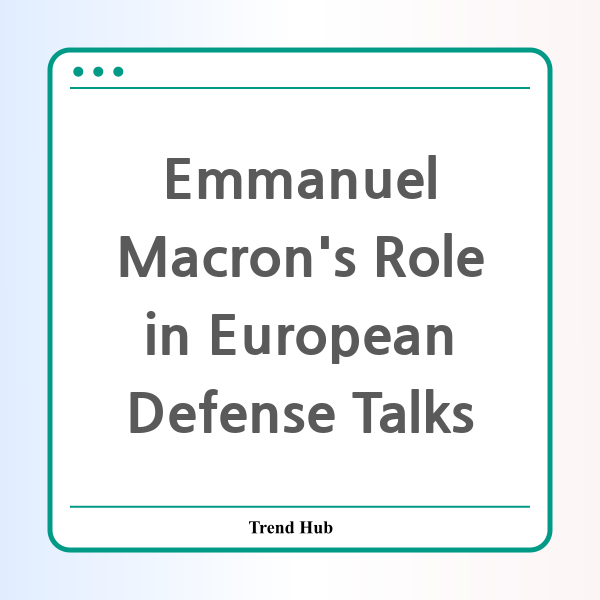* This website participates in the Amazon Affiliate Program and earns from qualifying purchases.

In a pivotal moment for European security, leaders convened in Paris to discuss increasing defense capabilities amid escalating tensions in Ukraine. As Emmanuel Macron leads the charge to strengthen the continent’s military stance, the focus turned to crucial debates around peacekeeping efforts and defense spending.
On February 17, 2025, the Elysee Palace served as the backdrop for significant discussions among European heads of state. With the situation in Ukraine remaining unpredictable, the topic of deploying peacekeepers was met with mixed responses. German Chancellor Olaf Scholz expressed skepticism, stating, "It’s completely premature and the wrong time to discuss this now." He highlighted the necessity of Ukraine’s involvement in any potential peace negotiations.
Conversely, British Prime Minister Keir Starmer called for a more robust European military response. He emphasized the urgent need for the continent to enhance its defense expenditures, indicating that the U.S. will not withdraw its support for NATO. Starmer suggested that British forces could be deployed in alignment with other nations if a comprehensive peace agreement were reached.
Polish Prime Minister Donald Tusk noted a shift in transatlantic relations, signaling that European nations recognize the imperative of bolstering their own defense strategies without jeopardizing their economic standings. He remarked, "Defense spending will no longer be deemed excessive," reflecting a broader consensus for increased military budgets across Europe.
The Danish perspective, articulated by Prime Minister Mette Frederiksen, underscored the urgency for all European nations to step up in both military readiness and home defense spending. As tensions loom large, Frederiksen cautioned against rushing a ceasefire that could inadvertently empower Russia to regroup and strike again.
Spanish Prime Minister Pedro Sanchez made a compelling case for EU-involved peace talks that align with international law, emphasizing the importance of a just and lasting peace that does not overlook history's lessons.
European Commission President Ursula von der Leyen reiterated that Ukraine deserves "peace through strength," advocating for a collective military support strategy from Europe. This statement aligns with Macron’s vision of a unified European response to external threats.
As discussions progress, Macron's leadership is instrumental in negotiating the fine line between maintaining peace and ensuring collective security. With challenges ahead, the ongoing dialogues highlight a crucial moment for European unity and response strategies regarding Ukraine.
The path forward is laden with complexities; however, Macron's firm commitment to advancing a strong defense posture may pave the way for a more resilient Europe. As leaders deliberate on solutions, the emphasis remains on fostering a collaborative approach to security that respects the sovereignty and integrity of nations, particularly Ukraine.
In conclusion, the emergency talks in Paris symbolize a significant chapter in European defense policy. With Macron at the helm, Europe may be poised to redefine its military strategies in response to the challenging geopolitical landscape, ensuring it is prepared for any eventualities.
* This website participates in the Amazon Affiliate Program and earns from qualifying purchases.